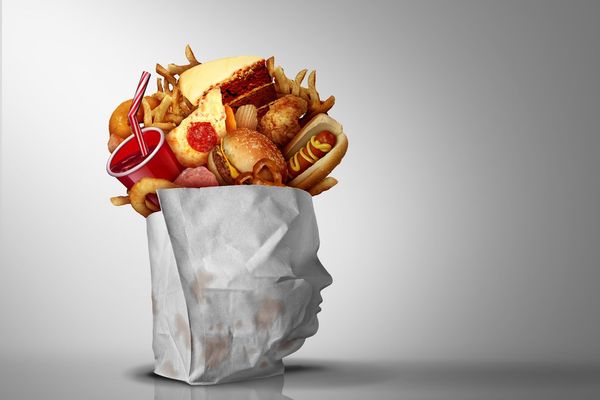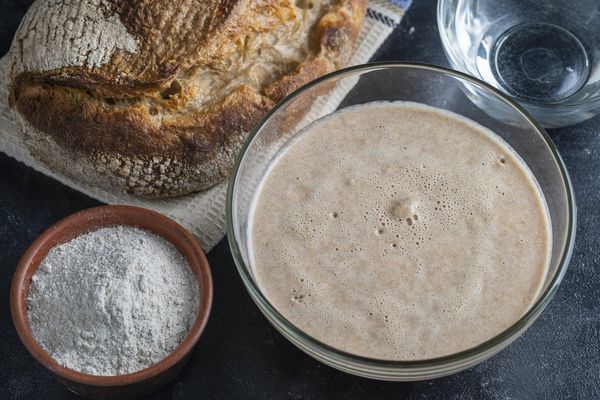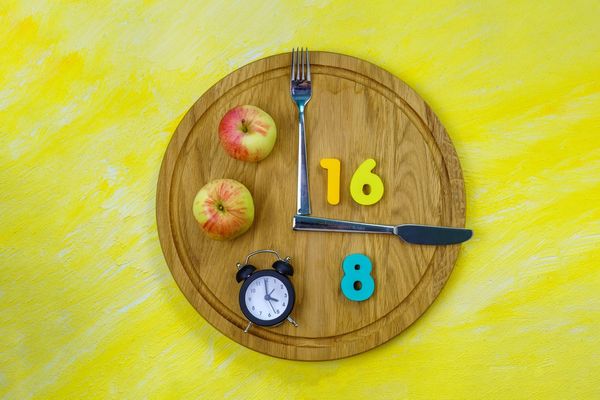After a long day, you head for your stash of chocolate chip cookies. And then after dinner, you help yourself to a heaping bowl of ice cream, topped with whipped cream and sprinkles. You repeat the cycle, day in and day out. As you likely know, this habit isn't doing you or your body any good.
No one really needs more sugar. It provides empty calories that add pounds to your waistline. Plus, it raises your insulin levels, putting you at risk of high blood pressure, diabetes, heart disease and more.
Learn more: Sugar - It's Not Heart-Healthy
Remember, too, that sugar is added to all kinds of foods that you wouldn't expect to find it in—even foods you assume are "healthy" often have added sugar. In fact, it's the very foods and drinks you may not consider sweet that can take you by surprise. Think ketchup, marinara sauce, white bread. So, it pays to read labels.
Here are some red flags that your body is telling you it's time to cut back on sugar.
You act like you're PMS-ing.
When you're coming off a sugar high, you can experience mood swings. And that leaves you cranky. Plus, when your energy is crashing, you can be left in a bad mood.
You eat sugar—even when you're full.
Yes, you may be stuffed after a meal. But you somehow manage to make room in your stomach for a large slice of pie. A sign of sugar dependence is that you turn to the sweet stuff even when you're not hungry.
You go to extreme lengths to get sugar.
You run to the grocery store at midnight for a pint of ice cream. You stop at the gas station on the way home from work for a candy bar. When you go out of your way for sugar, that's a sign your sugar addiction is problematic.
Your brain is foggy.
When you eat a lot of sugar, your blood sugar levels quickly rise and fall, instead of doing so gradually. You experience cognitive issues and impairment, especially after a meal.
You crave sugar constantly.
It's a vicious cycle. The more sugar you eat, the more you crave it. Your taste buds now are left needing more to get the same taste. Plus, like a drug, your body enjoys how sugar gives you a high followed by a crash. A high-sugar diet triggers your body to want more of it.
One chocolate bar isn't enough.
To feel satisfied, one cookie doesn't satisfy your craving. When you eat too much sugar, you bombard your taste buds. In turn, your taste buds' sugar tolerance goes up. And you need more and more sugar to feel like something is sweet enough.
You eat sugar on the down low.
You sneak a Hershey Kiss here, a doughnut there—all while the kids are in bed. You hide your sugar habit, instead of finding ways to cut back. You make deals with yourself or excuses, saying, "Just this once," or, "I'll work it off at the gym tomorrow." That's the sign of a sugar addiction.
You turn to sugar to soothe your woes.
A pint of rocky road when you go through a big breakup is (sort of) justifiable. But if you constantly need something sweet when you're stressed, bored or anxious, you have sugar addiction. It's unhealthy to turn to sugar for emotional relief. Plus, turning to food to drown your sorrows doesn't let you properly feel and deal with your emotions.







